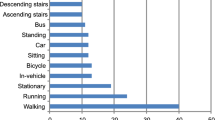Abstract
With the expected increase of the population that lives in the urban cities, the concept of a smart city is becoming more concrete due to the necessity of adaptation, considering its sustainability and competitiveness. The hope is that modern society will be able to deal with the multitude of issues that urban inhabitants are already facing, which will doubtless be further exacerbated as cities continue to expand. Therefore, instead of traveling to the city hall to register an occurrence, the user may have a 24-h service that is portable and easier to create events. Its proficiency and facility to get into a smartphone is a plus point to encourage the citizens to use it, thus using existing resources to make the city smarter. This service will be the application (mobile and web) built within the scope of this thesis, which allows to record the occurrences efficiently. In this way, Artificial Intelligence will perform an important role in this field, since it recognizes patterns and, in an efficient way, find and suggest better solutions, which will be applied with a machine learning method in order to anticipate occurrences to make the city proactive, trying to anticipate and solve their problems in advance.
Access this chapter
Tax calculation will be finalised at checkout
Purchases are for personal use only
Similar content being viewed by others
References
Lisboa vai ter plataforma para gestão de ocorrências (2017). https://www.sapo.pt/noticias/economia/lisboa-vai-ter-plataforma-para-gestao-de_596874968acee80f0d638ea2
European Environment Agency: Urban environment (2017). https://www.eea.europa.eu/themes/urban/intro
Genésio, F., Nascimento, E.: Sintra cria aplicação de denúncia de problemas (2016). http://www.cmjornal.pt/portugal/cidades/detalhe/sintra-cria-aplicacao-de-denuncia-de-problemas
Lopez, R., Plaza, E.: Case-based reasoning: an overview. AI Commun. 10, 21–29 (1997)
Nam, T., Pardo, T.A.: Conceptualizing smart city with dimensions of technology, people, and institutions. In: Proceedings of the 12th Annual International Digital Government Research Conference on Digital Government Innovation in Challenging Times - dg.o 2011 (2011). https://doi.org/10.1145/2037556.2037602
Roser, M., Ortiz-Ospina, E.: World Population Growth (2018). https://ourworldindata.org/world-population-growth
SCC Europe Staff: How Santander, Spain is using sensors to tackle waste (2017). https://eu.smartcitiescouncil.com/article/how-santander-spain-using-sensors-tackle-waste
Schmidhuber, J.: Deep learning in neural networks: an overview. Neural Netw. 61, 85–117 (2015)
Toppeta, D.: How Innovation and ICT The Smart City vision: How innovation and ICT can build smart, liveable, sustainable cities. Think report (2010)
Vincent, J.: 99.6 percent of new smartphones run Android or iOS (2016). https://www.theverge.com/2017/2/16/14634656/android-ios-market-share-blackberry-2016
Acknowledgements
This work has been supported by COMPETE: POCI-01-0145-FEDER-007043 and FCT - Fundação para a Ciência e a Tecnologia within the Project Scope: UID/CEC/00319/2013.
Author information
Authors and Affiliations
Corresponding author
Editor information
Editors and Affiliations
Rights and permissions
Copyright information
© 2019 Springer Nature Switzerland AG
About this paper
Cite this paper
Ferreira, M., Ramos, J., Novais, P. (2019). Occurrences Management in a Smart-City Context. In: Rodríguez, S., et al. Distributed Computing and Artificial Intelligence, Special Sessions, 15th International Conference. DCAI 2018. Advances in Intelligent Systems and Computing, vol 801. Springer, Cham. https://doi.org/10.1007/978-3-319-99608-0_13
Download citation
DOI: https://doi.org/10.1007/978-3-319-99608-0_13
Publisher Name: Springer, Cham
Print ISBN: 978-3-319-99607-3
Online ISBN: 978-3-319-99608-0
eBook Packages: Intelligent Technologies and RoboticsIntelligent Technologies and Robotics (R0)




